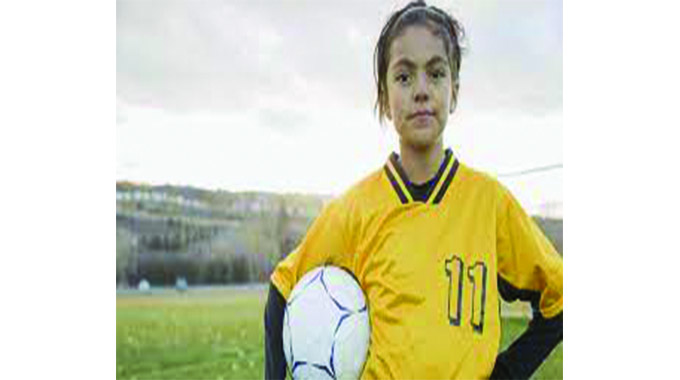Encourage girls to play sport

Innocent Kurira, Sports Reporter
THERE is need for a change in attitude in the family set-up and society if the country is to produce more female participants in the various sporting disciplines previously viewed as a preserve of boys.
Although the activities of girls and boys have converged over time, there are still diverging paths for each gender, and many children’s activities are still differentiated according to gender.
The majority of females are restrained from full participation in sports due to the social construction of spaces that largely suit males.
This is the case with women’s football in the country.
It took more than a decade for women’s football to be embraced, but it continues to be viewed in lesser light compared to men’s football.
Zimbabwe has done well in women’s football over the years and administrators feel the participation of more women in the beautiful game has been hindered by various stereotypes, chief among them the way children are brought up within their families and society at large.
Children need to be accorded equal sporting opportunities regardless of their gender.
Legends Sports Development Academy chairman Gibson Homela says parents play a big role in encouraging their children to take football as a profession.
“We have a girls’ team that has less than 15 players. We have looked into that, and realised that the belief that football is a male game still exists out there. We still have parents who do not allow their children to play football because they believe it’s a male sport. They discourage their children to train, which we feel is not fair on some talented ladies out there,” said Homela.
He believes parents should be enlightened that sport is now open to anyone and there is now professional football for women, so therefore girls must be allowed to pursue any sport of their choice.
For women’s football to become as popular as the men’s game, Homela says socialisation of girls has to change from an early age because it’s largely responsible for categorising sport according to gender.
“Hence, we must educate parents by telling them the benefits of being a footballer and if their child is interested in playing football, they must encourage them notwithstanding whether it’s a boy or girl,” Homela said.
Sibekiwe Ndlovu, who heads the academy’s women’s football affairs, says women’s football does not get the exposure it deserves and struggles to attract enough players.
“Most parents are of the view that girls should not be playing football because they believe that girls should be indoors cooking and doing all sorts of house chores during the time we train. It’s difficult to convince a parent to allow girls to play football. I believe we have a lot of work to do to uplift the girl child in sport. We should do away with the mentality that this is a male sport.
“We therefore, need to push the girl child into the spotlight to an extent that we have references by saying ‘look at this girl, she played football and was signed by a team in Europe’ like Rutendo Makore. She has played in Europe, but because she is not profiled well enough, only a few people know that she even played professional football abroad. I believe the girls do not get the exposure that they actually deserve,” Ndlovu said.
She said platforms such as Cosafa are doing a sterling job in helping uplift the women’s game and it was now up to national sports associations to educate society to cast away outdated beliefs that football is a men’s game when women in other countries have made careers out of it.












Comments